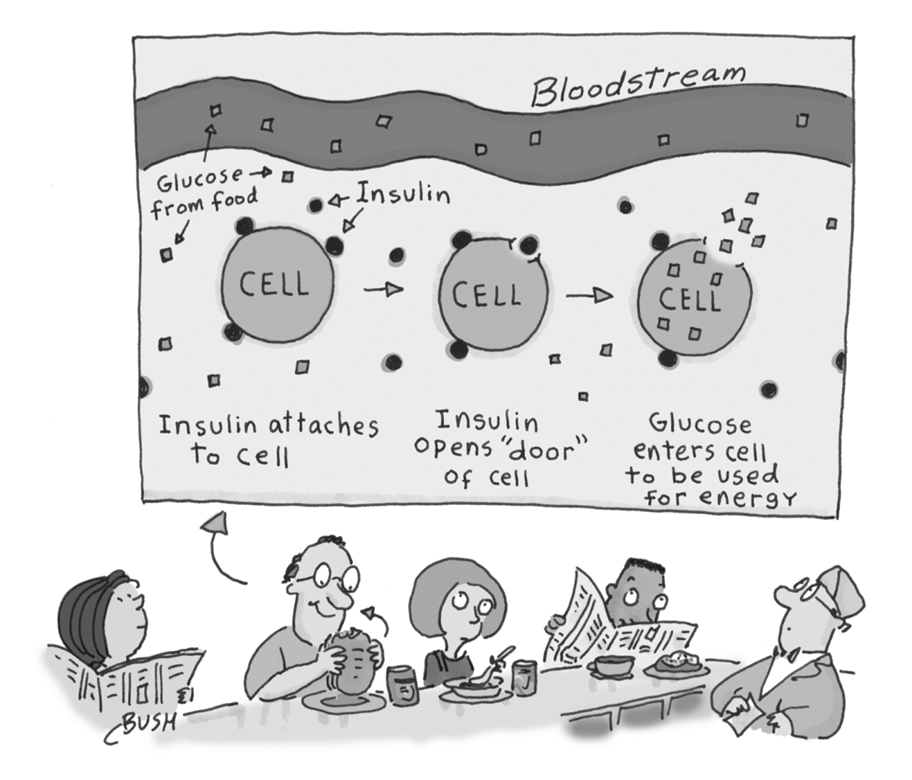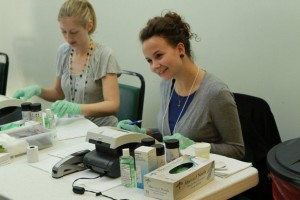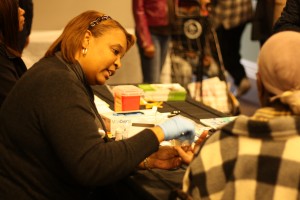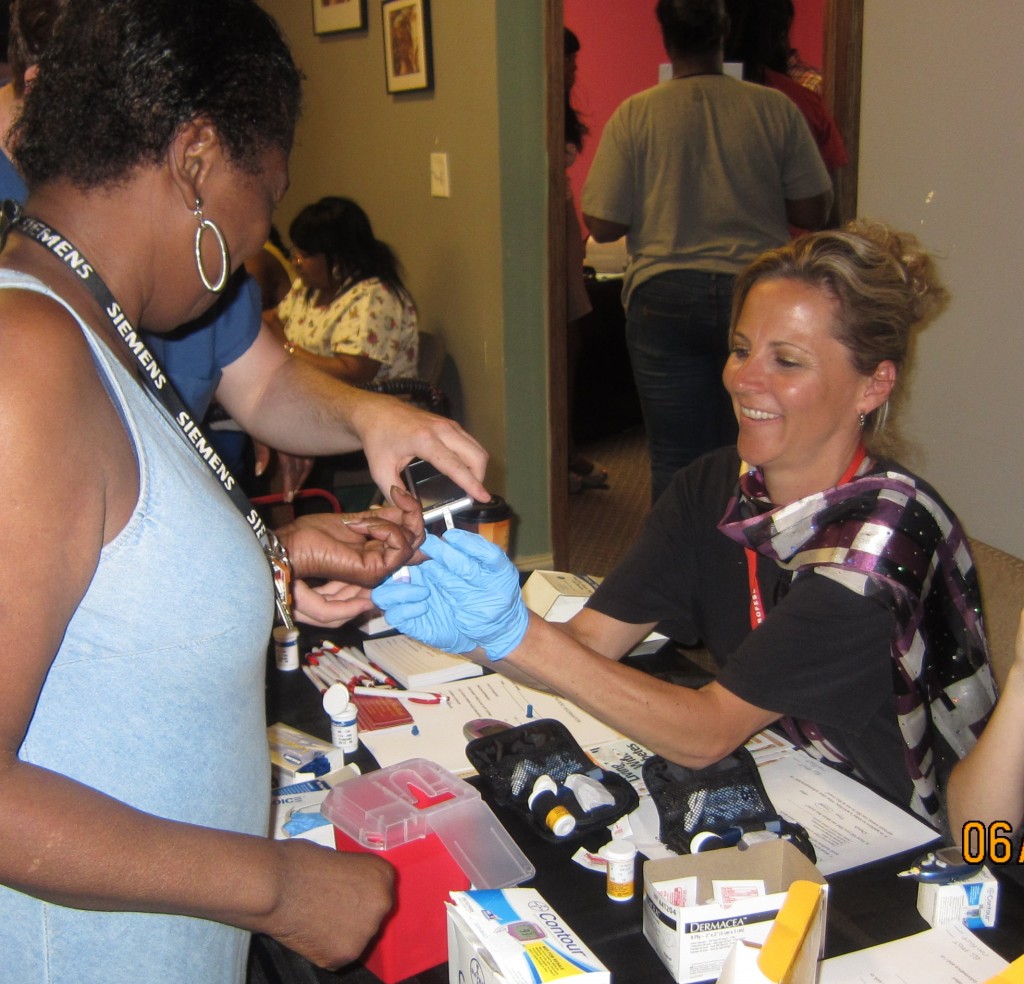Diabetes is when your body doesn?t make enough (or any) insulin, and the levels of sugar in the bloodstream become too high.
To understand this better, let?s start with the basics.
Our bodies need energy to work?just like a car needs gas. Everything we do?breathing, thinking, moving?depends on that energy.
We get that energy from food (and many drinks, too). When we eat, food is digested and broken down to become energy for our body to use.
Different kinds of food become different kinds of energy. Meat, for example, gives us protein. Starchy food like bread, fruits and sweets give us carbohydrates, often known as carbs. When carbs are digested in our stomach, they are broken down into sugar, most commonly known as glucose.
The sugar, or glucose, leaves the stomach and enters our bloodstream. From the bloodstream, it goes to all the different parts of our body, enters the cells, and is used as energy to keep the cells working.
If you have diabetes, you have too much sugar, or glucose, in your blood.
When our food is digested, glucose?the sugar from the food?enters our bloodstream. Most of this glucose needs to leave the bloodstream and enter the cells in our body to help them work. But to get into the cells, glucose needs help. Think of the cells like a locked door?and we need the key to get in!
Luckily, the pancreas has the key. The pancreas is one of the body?s many organs making sure things run smoothly. The pancreas makes a hormone called insulin. Insulin is the key that unlocks the door to the cell, to let the glucose inside. Remember, without glucose?the energy from the food?our cells won?t work well.

Diabetes is caused when insulin doesn?t help the glucose get into the cell.
This can be because pancreas makes no insulin at all or not enough, or because the insulin it does make doesn?t work well.
- In type 1 diabetes, the body?s immune system attacks the pancreas and destroys the cells that make insulin. Patients with type 1 diabetes have to take insulin for the rest of their lives. Most patients with type 1 diabetes are diagnosed as children or adolescents.
- In type 2 diabetes, the pancreas doesn?t make enough insulin to meet the body?s needs and/or the insulin it makes doesn?t work well enough.ÿ Most patients with type 2 diabetes are diagnosed as adults. Persons who are overweight or have a family history of diabetes are more likely to develop type 2 diabetes than other people.
Without insulin, the glucose can?t get into the cells, and it gets stuck in the bloodstream. This means you will have ?high blood sugar,? and this is a problem! Why?
- Cells won?t have enough energy to work well.
- The blood will have too much sugar in it to do its job well.
- Having high blood sugar can make you feel poorly?you might experience fatigue, sleepiness, thirst, or blurry vision.
- The biggest problem, however, comes from when you have high blood sugar for long periods of time?for months or even years. This can cause complications to the body?s organs, such as kidney failure, blindness, or stroke.
But you can control the amount of sugar in your blood!
Remember that the sugar in your blood comes from eating. If you pay attention to what you eat, and exercise to use the energy from the food, then you can make a difference in your blood sugar levels and in your health.
How do we know how much sugar is in your blood? We monitor blood glucose levels?usually with a glucometer. Checking your blood sugar helps you know what?s going on inside your body.
If you check your blood sugar regularly, you can learn which foods (and how much of those foods) make it go too high, and what kind of exercise can help bring it back down. The simplest changes can make a big difference for your body!
There are many ways to control diabetes.
For some people, changing your diet and exercise habits is the best treatment for their diabetes. This helps control how much energy your body takes in and uses.
For others, medication is another important part of treatment. Medication helps your body use the energy from food in the way it?s supposed to. Click here for more information on treatment options.

Understanding diabetes, and trying to manage it, can feel overwhelming. But the smallest changes can make a big difference. Complications from diabetes CAN be avoided. People living with diabetes can live healthy, happy lives!
Check out the American Diabetes Association site for more information about diabetes and how to manage it.



